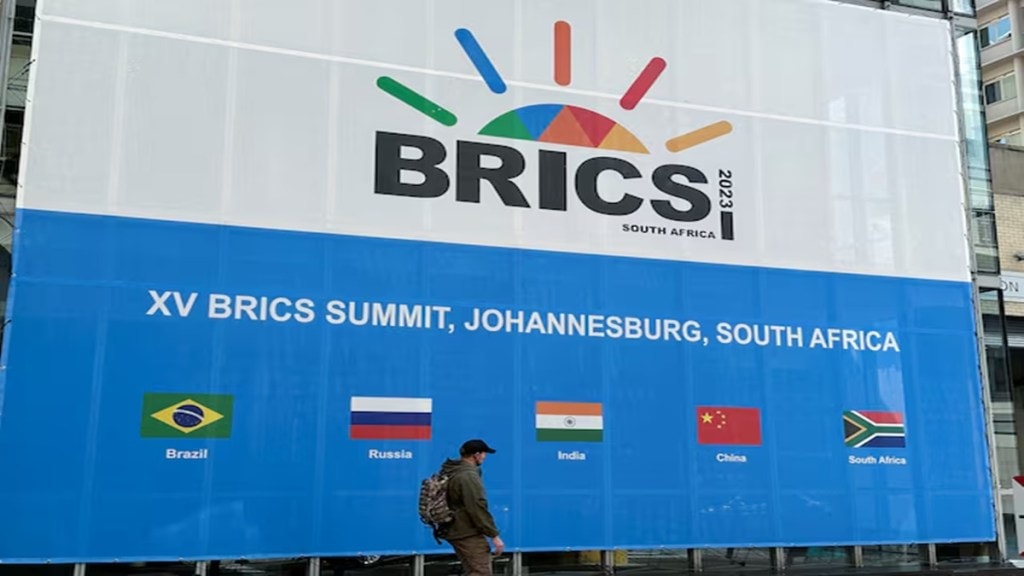In an important geopolitical development, Russia’s Deputy Prime Minister Alexei Overchuk made two significant announcements during his visit to Islamabad: first, Russia welcomes Pakistan’s application to the BRICS membership, and second, the International North-South Transport Corridor (INSTC) may be connected to the BRI. These announcements were clearly aimed at sending a message to New Delhi.
Experts like Prof. Rajan Kumar of JNU argue that India should firmly oppose Pakistan’s entry unless clear membership rules are established, while independent political analyst Dr. Aparaajita Pandey highlights the broader geopolitical implications, particularly the growing ties between Russia, China, and Pakistan. With BRICS expanding to include countries with strong connections to China, Pakistan’s potential membership raises complex questions about South Asian dynamics, Russia’s evolving alliances, and the future direction of BRICS as a non-Western global economic bloc.
In conversation with Financial Express Online, Prof Rajan Kumar, School of International Studies, JNU said: “Russia’s announcement to support Pakistan’s entry to BRICS must be viewed against the backdrop of Prime Minister Modi’s visit to Ukraine in August 2024. Moscow is trying to state that New Delhi’s ties with Ukraine will have repercussions. Moscow tried to ameliorate the situation by modifying the statement that a consensus had to be reached regarding the entry of Pakistan into BRICS. However, the fact that Russia welcomes Pakistan is tantamount to ignoring India’s concerns.”
In his view New Delhi is yet to articulate its position on Pakistan’s entry to BRICS. However, it should remain firm in rejecting Pakistan’s entry into BRICS. “New Delhi should insist on the following conditions for the entry of a new member to the organisation: first, the rules and norms of entry into BRICS should be clearly specified. Second, a country’s economic condition must be considered before offering a membership. Third, any country promoting terrorism against another BRICS member cannot be allowed membership,” he opines.
According to him, “The BRICS has saved Russia from isolation, and India has played a significant role in building a non-Western narrative in Russia’s favour. India should not come under external pressure on BRICS’ membership to Pakistan at this point. The membership issue is to be decided by consensus, and Pakistan will have to consider India’s concerns before it acquires membership to BRICS. India should be willing to negotiate with Pakistan on this issue.”
“Russia is a host, and India should cooperate closely with Russia in organising the event, but it must insist on specifying rules for entry into BRICS. Since the membership is decided by consensus, it practically holds a veto in denying entry. Pakistan can undoubtedly become a member, but it will have to change its policy on terrorism and improve its economy,” Prof Rajan opines.
Sharing her views, Dr Aparaajita Pandey, an independent political analyst says: “Right at the cusp of the upcoming SCO meet, Moscow stated that they would not be opposed to Pakistan’s bid for the BRICS+. The forum that saw its conception as a group of economies with greater potential has now transitioned into an organisation of the global south that could be the non – western alternative to the IMF. Earlier this year the world saw the addition of six new countries to the original grouping, making it go from BRICS to BRICS+.”
“While on the surface it is the willingness of nations of the global south to be a part of this grouping as one digs deeper it also becomes clear that this has larger geopolitical implications for the members outside the ambit of the group,” Dr Pandey says.
According to her, the six new nations that have joined in January 2024 represent not only growing economies with great potential for development but also, countries that have close ties with China and have either been a part of its BRI initiative or are nations where China has made deep inroads over the past few decades. With this context the possible addition of Pakistan needs to be evaluated on a few different parameters – the political dynamics of South Asia, the Pakistan – China relationship, the growing proximity between Russia and China, and also the Moscow – Islamabad dynamics,” she explains.
Islamabad was quick to announce that they have had long and friendly relations with Moscow, soon after their statement in support of Pakistan.
Bottomline
If Pakistan were to join BRICS it would most certainly spell an interesting addition to the chessboard for India. For Pakistan, BRICS is an opportunity for greater connectivity, gas pipelines, as well as aid packages that do not come via the IMF.

